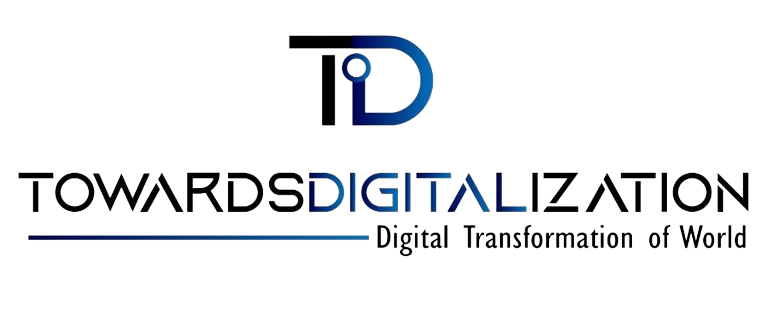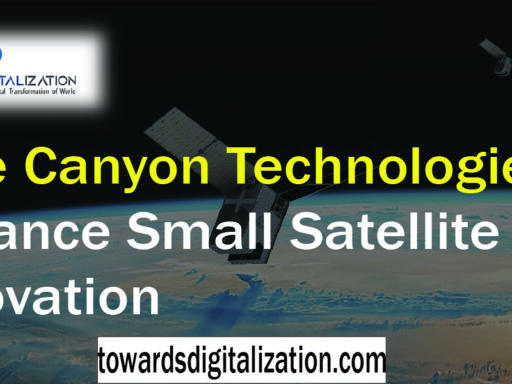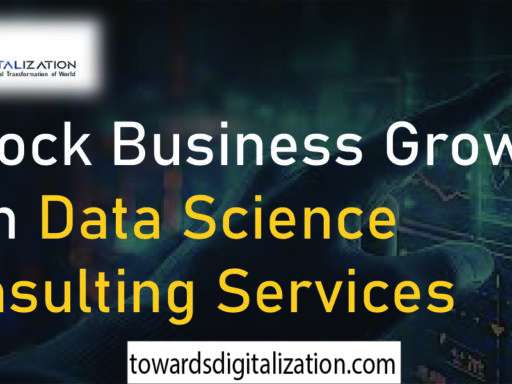Introduction
As our world embraces digital change, education is among the fastest evolved sectors embracing technological innovations. Educational technology (or EdTech for short) is a combination of tools designed to enhance learning experiences; as this form of innovation gains more prominence among educators and innovators alike, jobs in EdTech have attracted greater consideration from technologists, educators and innovators. Due to this growing demand professionals are finding exciting job opportunities which combine education with innovation and technology.

This article presents an in depth exploration of educational technology jobs, ranging from the qualifications required and job openings available, to the emerging trends that are currently influencing this industry. In particular, it highlights how evolving demands and innovations are shaping career paths. Moreover, readers will gain valuable insights into what it takes to thrive in this dynamic field. Ultimately, the goal is to provide a comprehensive understanding for anyone interested in pursuing a career in educational technology. Furthermore, we highlight its role in changing traditional teaching and learning practices.
The Rise of Educational Technology
Starting out, digital education was driven by various factors including increased internet access and remote learning requirements as well as the desire for personalized instruction. Universities, schools and companies’ learning and development departments all invested heavily in EdTech solutions to accommodate this trend.
Noteworthy is also that the COVID-19 pandemic served as an impetus, prompting universities and colleges to adopt online learning platforms almost instantly, underscoring the significance of having an efficient EdTech infrastructure as well as necessitating professionals capable of designing, implementing and overseeing its use in educational technology.
Why Pursue a Career in Educational Technology?
Education technology careers offer many compelling reasons. EdTech allows individuals to have a significant impact on how students study and learn, with flexible work options such as remote jobs or freelance gigs often being available. Furthermore, EdTech careers continue to expand rapidly – providing security as well as opportunities for career growth!
Additionally, experts in this field relish working multidisciplinary. Their skills range from design and computer science through psychology and data analytics; creating an exciting intellectual experience.
Key Skills for Educational Technology Jobs
To be successful in educational technology, professionals should possess both technical and soft abilities. Below is a list of essential skills required:
1. Technical Skills
- Instructional Design: Being aware of how to structure educational experiences that optimize learning.
- Learn Management Systems (LMS): Competence across platforms like Moodle, Canvas and Blackboard.
- Authoring Tools: Experience with authoring tools like Articulate StoryLine, Adobe Captivate and iSpring is essential.
- Multimedia Production: Skills encompass video editing, animation and audio editing.
- Basic Programming: Beginning Programming Knowledge of HTML, CSS or JavaScript could prove immensely helpful when beginning programming.
2. Soft Skills
- Communication: Communication involves clearly and precisely explaining complex ideas to a variety of audiences.
- Collaboration: Working closely with designers, teachers and IT/design teams.
- Adaptability: Staying abreast with rapidly advancing technologies requires flexibility to keep pace.
- Problem Solving: Solutions with PEDAGOGY
These skills allow professionals to fulfil a range of roles within EdTech.
Popular Educational Technology Job Titles
Educational technology presents many job opportunities. Here are some of the most sought-after roles:
1. Instructional Designer
Instructional designers create blended and online learning resources. To begin with, they work closely with experts in their field. In addition, instructional designers collaborate on creating learning content that is not only engaging but also efficient. Moreover, their goal is to develop material that captures and retains the attention of their target audiences. Consequently, this partnership ensures the final product is both informative and accessible. Ultimately, through ongoing collaboration and iteration, instructional designers help deliver impactful learning experiences. Instructional designers are frequently employed by companies with training divisions or that offer e-learning services.
2. ELearning Developer
E-learning developers, for instance, specialize in designing dynamic online learning courses. Using a combination of authoring tools and multimedia applications, they aim to engage learners more fully. In doing so, they effectively transform learning goals into immersive digital experiences for users. Moreover, their work ensures that educational content is not only accessible but also interactive and impactful. As a result, learners are more likely to stay motivated and retain information in a digital environment.
3. Educational Technologist
Educational technologists facilitate technological integration into classrooms and curricula. They offer technical education for teachers, assist with repairs for EdTech devices and suggest innovative technologies that enhance teaching methodologies.
4. Learning Experience Designer
Learning experience designers employ an approach that prioritizes user friendliness when designing courses, taking into account how students engage with information and working toward making learning easy and enjoyable for all students.
5. EdTech Product Manager
Product managers play a vital role in creating tools and software designed for education. Working closely with engineers, educators, marketing and sales departments as well as other departments they create new products on the market.
6. Curriculum Designer
Curriculum designers create academic content in alignment with established academic standards. In recent years, with the rise in online learning platforms like Blackboard and Moodle, moreover, a growing number of curriculum designers are focusing on developing online friendly material. As a result, they are adapting traditional curricula to suit digital formats and interactive environments. Furthermore, this shift supports greater accessibility and engagement for diverse learners. Ultimately, curriculum designers play a key role in shaping modern education to meet both institutional goals and student needs.
7. LMS Administrator
An LMS administrator is accountable for overseeing the learning management system (LMS), ensuring its smooth running. They oversee user access as well as uploads for course systems updates and technical assistance as needed.
8. Education Data Analyst
Education data analysts use student performance information to improve teaching methods and courses, often working closely with academic institutions to help make decisions based on data.
Where Do Educational Technology Professionals Work?
Education technology (EdTech) encompasses various industries. Although most people associate EdTech with universities and schools, its use can extend well beyond this context.
1. Academic Institutions
Colleges, schools and universities employ EdTech experts to enhance digital learning experiences for their students, assist faculty, and manage course distribution online.

2. Corporate Training
Companies invest in EdTech solutions to enhance employee skills and provide compliance training. In this field, EdTech professionals design internal courses before deploying LMS solutions.
3. EdTech Companies
Firms that create educational software, applications, and platforms present many opportunities for career growth. You could work in roles like development process management, UX design, content production or even marketing.
4. Nonprofits and NGOs
Organizations which advocate for access to education and literacy make use of technology to reach underserved communities, with professionals participating in grant-funded initiatives with the aim of effecting social change.
5. Freelancing and Consulting
Many EdTech specialists work as independent consultants, course creators or trainers. This type of work provides great flexibility as you can take on various projects without being tied down to just one.
Trends Shaping the Future of EdTech Jobs
Education technology is ever evolving, making staying informed of current trends essential in staying ahead of technological advancements.
1. Artificial Intelligence and Machine Learning
Artificial intelligence has revolutionized EdTech by creating adaptable learning systems that personalize materials to every learner hence why professionals with AI skills are growing ever more sought after on the job market.
2. Gamification
Incorporating game like elements into learning experiences can, without a doubt, dramatically increase engagement and motivation for students. As a result, EdTech professionals with experience in gamification are seeing more and more opportunities for growth in this space. In fact, the demand for such skills continues to rise as institutions seek innovative ways to enhance learner interaction. Moreover, gamified learning not only captures attention but also fosters deeper retention and enjoyment. Ultimately, this trend is reshaping how education is delivered in both traditional and digital environments.
3. Virtual Reality and Augmented Reality (VR/AR)
Virtual reality and augmented reality provide engaging learning environments, particularly for subjects such as science and history as well as engineering. EdTech jobs related to VR/AR technology development are rapidly growing.
4. Microlearning
Microlearning modules have become increasingly popular in both academic and business environments, and those who can create effective microlearning materials stand a higher chance of achieving success.
5. Data Driven Education
With the surge of massive data growth, businesses are increasingly relying on analytics to guide their decision-making processes. Consequently, data analysts are expected to become an increasingly vital part of the education world. In fact, as data analytics become a necessity in educational settings, the demand for skilled professionals in this area will surge. Moreover, their role will be crucial in helping institutions make informed decisions, personalize learning, and improve overall academic performance. Ultimately, data driven strategies will redefine how educational success is measured and achieved.
Challenges and Considerations
EdTech can offer numerous advantages, but working in it comes with some challenges as well. One major hurdle lies in providing equal technological access. Professionals should take into account any digital divide due to geography, income or capability when providing equal technological access.
Furthermore, technology’s fast evolution requires continual training and adaptation – something which offers learning opportunities as well as testing resiliency and positivity.
Also, educators must align technological tools with educational goals; otherwise they risk becoming a distraction instead of tools to enhance learning.
Tips for Starting a Career in EdTech
If you are thinking about entering this field, these guidelines can provide a solid starting point:
- Launch yourself into freelancing or internships to build experience and expand your portfolio.
- Make contact with professionals through LinkedIn webinars, online meetings or meetups with local EdTech specialists.
- Participate in open-source initiatives or create modules to demonstrate your expertise.
- Keep informed on developments by following EdTech blogs, podcasts and publications.
- Certifications provide an effective way of validating your skills and improving your chances of securing employment.
Conclusion
Educational tech jobs are revolutionizing education by integrating technological tools and innovations into classroom and training environments. These positions assist teachers, students, institutions, and educators in achieving higher educational outcomes. To begin with, they play a pivotal role in bridging the gap between traditional and modern learning methods. As technology continues to evolve rapidly, experts in this field can therefore adapt quickly and employ innovative methods that meet changing demands both quickly and efficiently.
Furthermore, they continuously assess and refine strategies to align with the latest educational trends. As a result, as more learners take advantage of virtual and e-learning platforms, their reliance on expert education technology professionals has skyrocketed. In fact, this growing dependence highlights the crucial need for skilled individuals in this domain. Ultimately, their contribution ensures that educational systems remain responsive, inclusive, and future ready.EdTech jobs not only improve teaching processes but also equip learners with tools necessary for global success making a career in EdTech both stable and fulfilling.
Frequently Asked Questions
Question 1: What is the role of educational technology?
Technology plays an integral part of modern education, enriching learning experiences by offering various digital tools and resources to teachers and students alike.
Question 3: What is the scope of educational technology?
Educational Technology refers to the application of technological tools like software, systems and programs in education to aid training and management activities as well as to foster student development and management of their education. Educational Technology presents numerous opportunities in terms of instructional design teaching technology training psychology.
Question 4: Why do we need educational technology?
Digital technology holds great promise to enhance learning and teaching by stimulating student interest through interactive, fun learning environments. Furthermore, online interactions offer additional opportunities to build digital literacy, 21st century skills and digital civics competencies.
Question 5: What is the main objective in educational technology?
Technology’s primary aim in education is, first and foremost, to maximize learning outcomes. By leveraging technological tools and materials, teachers can, in turn, address students’ diverse skill sets and learning styles. As a result, they are able to ensure customized educational experiences for every individual learner. Furthermore, this personalized approach not only supports better engagement but also promotes deeper understanding. Ultimately, the integration of technology leads to more inclusive and effective learning environments.








